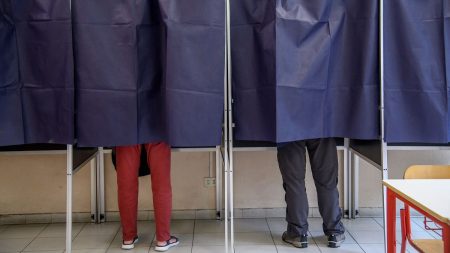The Belgian National Lottery has inadvertently found itself at the center of a money laundering investigation involving former Belgian finance minister and EU Justice Commissioner, Didier Reynders. Data released by the Lottery reveals suspicious activity linked to two accounts, presumed to belong to Reynders and his wife, raising questions about the origin of nearly €50,000 spent on lottery tickets in a single year. The crux of the suspicion lies in the couple’s unusual purchasing habits, utilizing a less common method of purchasing lottery tickets known as e-tickets. These electronically purchased vouchers, while readily available, are not typically associated with high-volume transactions, making the Reynders’ alleged activity stand out against the backdrop of millions of lottery players.
The National Lottery’s internal monitoring system flagged the two accounts due to their exceptionally high deposit amounts, reaching nearly €25,000 each in a single year. This placed them among a small group of only 39 accounts that deposited over €20,000 annually, immediately attracting scrutiny. Further raising suspicion, the accounts in question utilized high-value e-tickets for reloading and frequently transferred winnings rather than reinvesting them, a pattern atypical of regular lottery players. This unusual behavior triggered alarm bells within the Lottery’s system, prompting further investigation into the accounts’ activities. The stark contrast between their transaction patterns and those of average players is graphically illustrated in a chart released by the Lottery, highlighting the anomalous nature of the deposits and withdrawals associated with the accounts.
The Lottery’s concerns were substantial enough to warrant an external review by KPMG in 2021, which concluded by early 2022 that there was a risk of money laundering. These findings were then reported to federal prosecutors in March 2022. However, despite the Lottery’s timely notification, prosecutors did not request further information until August 2023, a delay of over 17 months. This prolonged period of inactivity raises questions about the handling of the case, particularly considering that the request for information came just two days after Reynders’ term as EU Commissioner ended. This timing has led to speculation that prosecutors were wary of potential legal immunity afforded to Reynders during his tenure.
While the exact source of the allegedly laundered funds remains unclear, Belgian media reports suggest a total sum of €1 million, with approximately 20% being funneled through the lottery system. Reynders, speaking through his legal representation, has denied any wrongdoing, claiming that the funds originated from his personal wealth and are unrelated to his political activities. He has further dismissed accusations of accepting bribes during his time as a Belgian minister as a malicious attempt to obstruct his appointment as an EU Commissioner. The Brussels prosecutor-general has acknowledged the existence of the case but has declined to provide further details, leaving many questions unanswered.
This case highlights the potential vulnerabilities of even seemingly innocuous systems like national lotteries to exploitation for illicit purposes. While casinos have long been recognized as attractive avenues for money laundering due to their high cash flow and relative anonymity, lotteries are generally perceived as lower risk. The National Lottery itself emphasizes its relatively low payout rates and stringent deposit controls as deterrents to criminal activity. The very fact that Reynders’ alleged scheme drew such significant attention arguably supports this assertion, suggesting that using the lottery for money laundering is an inefficient and easily detectable method.
The incident serves as a cautionary tale, underscoring the importance of robust monitoring and reporting mechanisms within financial systems, however seemingly benign. The National Lottery’s proactive approach in identifying and reporting suspicious activity, coupled with the eventual involvement of law enforcement, demonstrates a commitment to preventing financial crimes. While the investigation continues, the case raises important questions about the effectiveness of existing anti-money laundering measures and the potential need for enhanced vigilance across various financial platforms. The effectiveness of the lottery’s controls, the reasoning behind the prosecutor’s delayed response, and the veracity of Reynders’ claims remain to be determined as the investigation unfolds.










